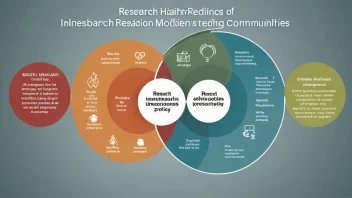Public health campaigns play a crucial role in preventing diseases and promoting healthier lifestyles among populations. These initiatives, often led by government agencies, non-profits, and community organizations, aim to educate the public about health risks and encourage behavior changes that can reduce the incidence of diseases.
One of the most significant impacts of public health campaigns is their ability to raise awareness about various health issues. For instance, campaigns targeting smoking cessation have successfully highlighted the dangers of tobacco use, leading to a notable decline in smoking rates. According to research, comprehensive anti-smoking campaigns that include graphic warning labels, public service announcements, and community support programs can decrease smoking prevalence by as much as 30% in targeted populations.
Another area where public health campaigns have made a difference is in vaccination promotion. The CDC's “Vaccines Save Lives” initiative has been instrumental in increasing vaccination rates, particularly during outbreaks of preventable diseases like measles and influenza. By educating the public about the importance of vaccines, these campaigns have helped to mitigate the spread of infectious diseases and protect vulnerable populations.
Additionally, public health campaigns address chronic diseases such as diabetes and heart disease by promoting healthy lifestyle choices. Campaigns that encourage physical activity, healthy eating, and regular health screenings have shown positive results. For example, the “Let's Move!” initiative launched by former First Lady Michelle Obama aimed to reduce childhood obesity by promoting physical activity and healthy eating habits among children and families. This campaign has contributed to a decrease in obesity rates among children in the U.S.
Social media has also transformed the landscape of public health campaigns. Platforms like Facebook, Twitter, and Instagram allow for rapid dissemination of information and engagement with the public. Campaigns can now reach wider audiences, especially younger demographics, through creative and relatable content. For example, the #ThisIsOurShot campaign effectively used social media to promote COVID-19 vaccinations, encouraging individuals to share their vaccination experiences and dispel myths surrounding the vaccine.
While public health campaigns have proven effective, they are not without challenges. Misinformation can spread quickly, undermining the efforts of these initiatives. It is essential for health organizations to continuously adapt their strategies to combat false information and connect with communities effectively. Tailoring messages to resonate with specific cultural and social contexts can enhance the effectiveness of these campaigns.
In conclusion, public health campaigns are vital tools in the fight against disease. By raising awareness, promoting vaccination, encouraging healthy lifestyles, and utilizing modern communication platforms, these initiatives can significantly impact public health outcomes. As we continue to face new health challenges, the importance of well-designed and effectively implemented public health campaigns cannot be overstated.






